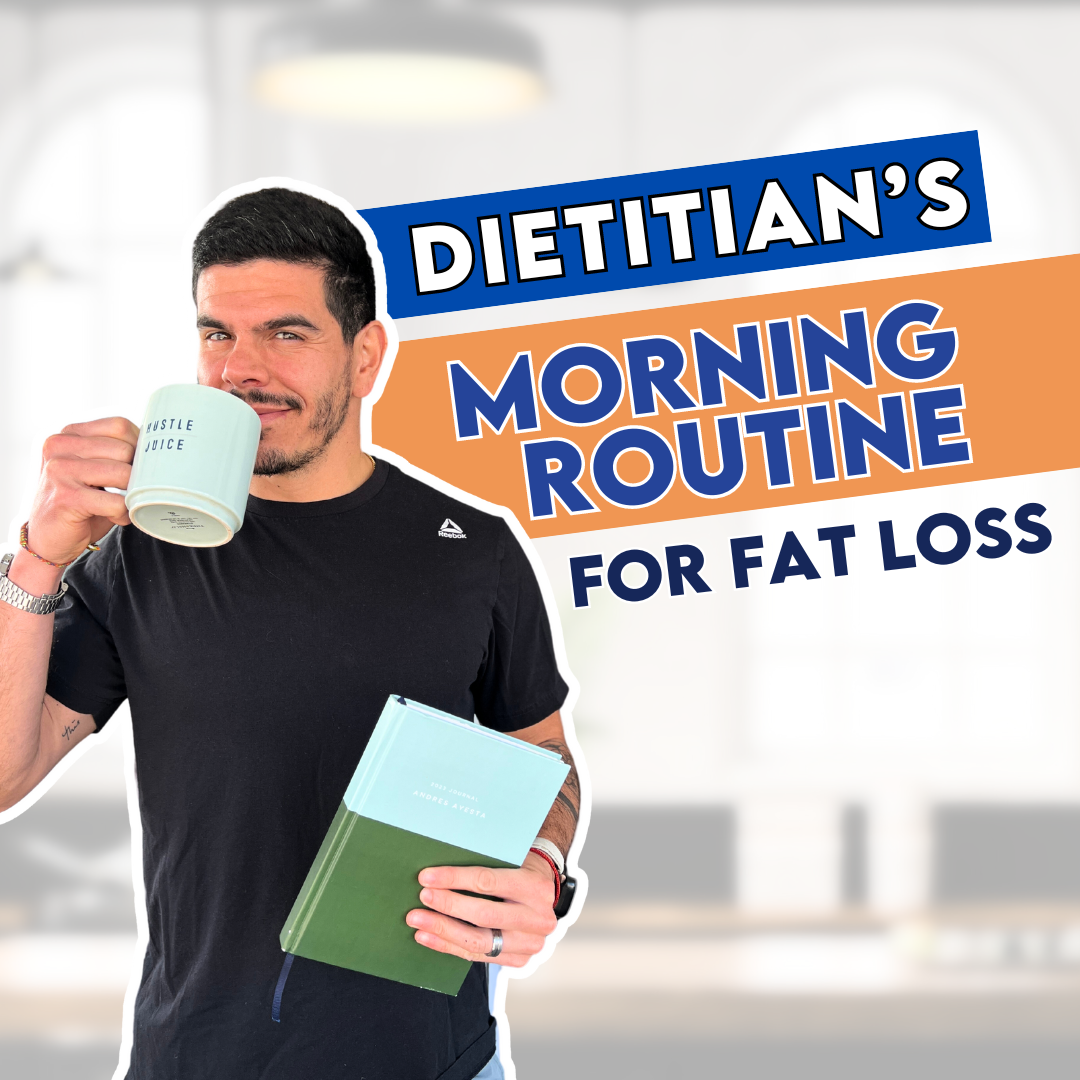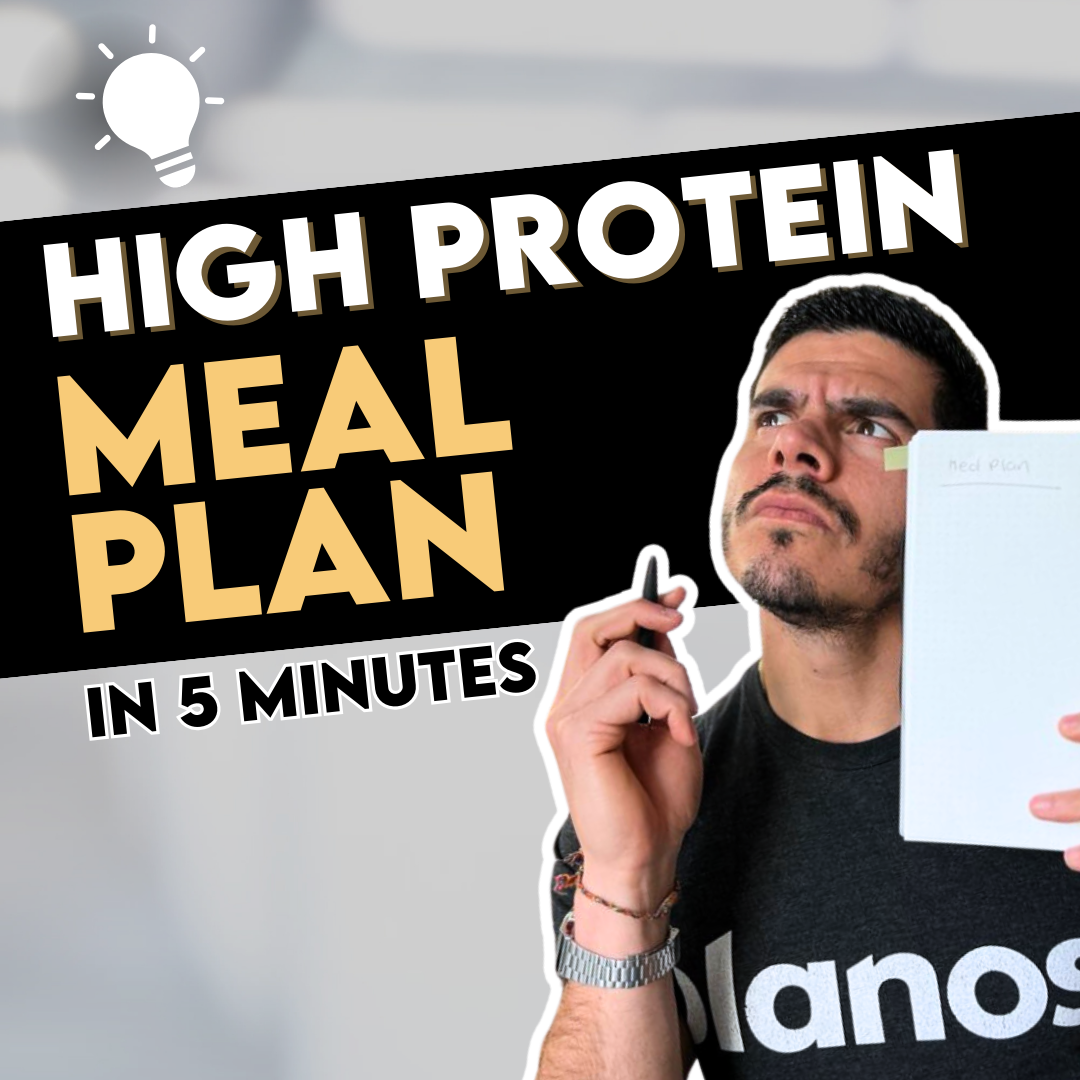When you’re trying to lose fat, it can be easy to get sucked into misinformation. In this article, we’re busting 3 common lies you may have heard.
Fat Loss Myths: 3 Lies to Stop Believing
If you’re on Instagram or TikTok, you’ve probably come across a lot of claims about nutrition or diet plans that market themselves as the “best” way to lose weight. The problem is, it can be so difficult to differentiate fact from fiction, especially when every diet plan on the market seems to have success stories.
While different methods work for different people, there are a few common fat loss myths that I see EVERYWHERE that are simply incorrect or bad advice.
Here is what’s wrong with these fat loss myths:
- They encourage people to develop unsustainable and restrictive approaches to weight loss
- They result in frustration, disappointment, and confusion.
While fat loss isn’t everyone’s goal, and it often occurs as a natural side effect of making more nutrient-dense food choices and getting more exercise, I know it’s something a lot of my clients and followers are working towards.
That’s why I want to make sure you have your hands on the latest, evidence-based nutrition info that will help you make sustainable changes in your nutrition and lifestyle to get to your goals, whatever they are.
And just so you know, I do NOT blame you if you got sucked in by any of these lies! There’s some pretty persuasive marketing out there
Now, let’s get into the 3 fat loss myths.
Myth #1: You should be cutting 1000 calories each day from your maintenance calories
Just because MyFitnessPal gives this as an option doesn’t mean you should do it!
If you cut your calories by this much, you’re going to feel hungry, irritable, and restricted. My rule with nutrition strategies is if you can’t see yourself sustaining it for 6 months, you shouldn’t try it. Do you want to be miserable for 6 months eating a low calorie diet? NO.
When you cut your calories too low, it can lead to a number of unwanted side effects, including a slowed metabolism, fatigue, nutrient deficiencies, and irritability (1,2,3,4).
If you’re using MyFitnessPal to help monitor your nutrition, I typically recommend that clients create a caloric deficit of 200-300 calories per day (ie. burning 200-300 more calories than you consume). Or, you can calculate your deficit as 10% of your maintenance calories. For example, if you determine that you must consume 2200 calories to maintain your weight, 10% of that is 220, so aim to consume 1980 calories each day for fat loss.
Now, I admit, this isn’t the approach that’s going to bring you the quickest results. But it is the approach that’s going to bring you LASTING results.
If you want to estimate the calories you need to lose fat, make sure to download our free MACRO COUNTING GUIDE FOR FAT LOSS if you haven’t already!
This guide gives you a general approach for determining the macros to help your body thrive. However, for more guidance I highly recommend working with a registered dietitian who is able to give more specific advice based on your lifestyle.
(P.S. we’ve got spots open this month in our signature coaching program in case you’re looking for some more guidance)
Myth #2: You need to eat a low carb diet to lose weight
With the popularity of the Keto diet in recent years, a lot of people have started thinking that carbs are the enemy and the only way to lose fat is to cut them out.
One reason low-carb works for many people is because they end up cutting out a lot of foods that were adding extra calories to their diet, like sugary drinks, baked goods, and other sweets.
However, a shift to any diet that results in taking in fewer calories than you burn will result in weight loss.
Carbs have tons of great benefits, such as fueling your brain, energizing your body for workouts, and providing a source of fiber to help maintain a healthy digestive system (5).
If you’re looking to make your diet more nutritious, try to get most of your carbs from unprocessed, high fiber sources, such as whole grains, legumes, fruits, and vegetables. Eating a diet that is higher in fiber will help you feel fuller and will make fat loss easier (5).
Remember, the best diet isn’t the one that has the most restrictions or cuts out the most food groups, it’s the one that you enjoy and you can sustain.
Myth #3: You will suddenly gain self-confidence and fulfillment when you lose weight
If you’ve been trying to lose weight for a long time, it can feel like it’s the only thing standing between you and happiness.
You might be sure that once you finally lose the weight and change the shape of your body, you’ll automatically have a great body image and all of the problems in your life will disappear.
Sadly, this isn’t always true. While making healthier choices will likely improve your life in many ways, such as feeling more energized, sleeping better, and possibly improving your mental health, fat loss isn’t a magical solution to poor self image.
While some people do experience improvements in self-confidence, others find that negative beliefs about themselves are present no matter what weight they’re at.
If you look in the mirror right now and focus only on your flaws, you’ll continue to look for flaws even at a lower weight.
While you’re working to improve your physical health, it’s important to simultaneously implement strategies to help you build a better relationship with yourself and get to the root of your insecurities.
If you don’t know where to start, keeping a journal is a great technique. Try to record things about your body that you’re grateful for, and if you’re feeling down, write about some of the negative thoughts that come up and consider ways you can reframe them. Writing positive affirmations is another great way to start seeing yourself in a more positive light.
For example, if you have the thought “I look terrible in this outfit,” you might reframe it as: “My body does so many amazing things for me every day. No one loves their body all the time, but I am working to take care of my body no matter what it looks like in the mirror.”
When coming up with ways to reframe negative self-talk, try to think of what you would say to your best friend if they were feeling the way you are about your body. Often it can be easier to come up with words of support for a friend than for ourselves.
How to Assess Nutrition Information
The world of nutrition and fat loss can be difficult to navigate because of all the conflicting opinions online. One of the best pieces of advice I can give you is to find a couple trusted sources to rely on whose approach is sustainable and whose advice is supported by research evidence. Be open to learning new things, but also be critical of what you read.
Here are my top tips to avoid getting fooled by fat loss myths and other nutrition misinformation:
- Be cautious with news articles – the media can oversimplify, misrepresent, or exaggerate scientific findings.
- Rely on regulated professionals for information. These are people that have academic titles – like Registered Dietitian – that mean they have undergone rigorous training.
- Healthline is a great resource because most of its articles have links to research studies and are reviewed by individuals with scientific or medical credentials.
- If you do investigate studies on your own, try to choose systematic reviews. These are the highest quality of evidence, as they combine and analyze the results of many different studies on the same topic.
- Draw your conclusions after reading multiple sources, rather than a single article making a claim.
If you have any nutrition claims you’re curious about, I’d be happy to give you my perspective – leave a comment below or send me a message on Instagram! I don’t claim to be an expert in every area of nutrition, but if I don’t know something, I probably can direct you to someone who is an expert.
References
- Rosenbaum M, Leibel RL. Adaptive thermogenesis in humans. International journal of obesity. 2010 Oct;34(1):S47-55.
- Fothergill, E., Guo, J., Howard, L., Kerns, J. C., Knuth, N. D., Brychta, R., … & Hall, K. D. (2016). Persistent metabolic adaptation 6 years after “The Biggest Loser” competition. Obesity, 24(8), 1612-1619.
- Montero A, López-Varela S, Nova E, Marcos A. The implication of the binomial nutrition-immunity on sportswomen’s health. European journal of clinical nutrition. 2002 Aug;56(3):S38-41.
- Relation of Dieting in College and High School Students to Symptoms Associated with Semi-starvation
- Slavin J, Carlson J. Carbohydrates. Adv Nutr. 2014 Nov 14;5(6):760-1..
explore more
explore more


